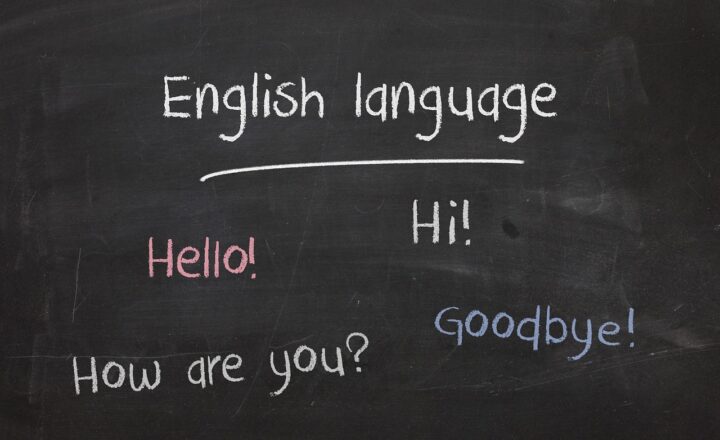Why Polish Is Easier to Learn Than You Might Think and How to Get Started
November 12, 2024

When most people think about learning a new language, they often gravitate towards the more commonly spoken options like Spanish or French. However, animosities and misconceptions surround languages like Polish, often leading to the belief that they are too complex or difficult to master. In reality, learning Polish can be a rewarding and achievable endeavor. In this article, we will explore why Polish is easier to learn than you might think and provide practical tips on how to get started on your language-learning journey.
1. The Structure of Polish: Familiar Ground
Many language learners feel intimidated by the varying levels of complexity in different languages. Polish, while it does possess a reputation for being challenging, has numerous structural similarities with other Indo-European languages, particularly those in the Slavic family.
Familiar Alphabet:
Polish uses the Latin alphabet with a few additional characters like ą, ć, ę, ł, ń, ó, ś, and ź. This means that learners do not have to tackle an entirely unfamiliar script like those who learn Arabic or Chinese.
Phonetic Nature:
Moreover, Polish is a largely phonetic language. This means that once you learn the basic pronunciation rules, you will be able to pronounce most words correctly as they are written. Unlike English, where pronunciation can be tricky with silent letters and irregular spelling, Polish maintains a consistent relationship between letters and sounds.
Logical Grammatical Structure:
Although Polish does have a case system with seven cases, which can initially seem daunting, it follows a set of predictable rules. This means that once you grasp the use of cases, you can apply the same principles across different contexts, leading to a logical progression in your learning.
2. The Richness of Polish Culture
One of the most significant motivators for any language learner is the cultural aspect associated with the language. Polish culture is rich and diverse, steeped in history, art, and literature. Here are a few elements that can make learning Polish even more appealing:
Literary Treasures:
Poland has produced brilliant authors such as Joseph Conrad, Wisława Szymborska, and Adam Mickiewicz. Accessing their works in the original language allows learners to experience literary nuances lost in translation.
Film and Music:
Polish cinema has garnered international acclaim, with filmmakers like Andrzej Wajda and Krzysztof Kieślowski leading the way. Music lovers can explore diverse genres, from traditional folk music to contemporary pop, deepening their understanding of Polish culture.
Cuisine:
Every culture has its culinary delights, and Poland is no exception. Learning the language can enhance your experience when visiting Poland, whether you’re ordering pierogi or exploring local markets.
3. Effective Learning Strategies
Now that you are motivated to learn Polish let’s delve into practical strategies that can facilitate your language-learning journey:
Set Realistic Goals:
A common pitfall is setting unachievable goals that lead to frustration. Begin with small, manageable tasks. For instance, aim to learn a few new words every week or master basic conversational phrases.
Utilize Language Apps:
In this digital age, several apps offer interactive language lessons tailored to different skill levels. Consider using apps like Duolingo, Babbel, or Memrise to reinforce vocabulary and grammar through gamification.
Practice Speaking:
Speaking is often where language learners struggle the most. Engage in conversation with native speakers through language exchange platforms like Tandem or HelloTalk. Practicing speaking helps solidify what you’ve learned and builds confidence.
Immerse Yourself:
Immerse yourself in the language through music, podcasts, or movies. For example, listen to the tunes of popular Polish artists or watch films with Polish subtitles. This exposure will help you develop an ear for the language and improve your comprehension.
Join a Community:
Joining a language-learning community can keep you motivated and accountable. Look for local Polish language clubs, online forums, or social media groups where you can connect with other learners and language enthusiasts.
4. Overcoming Challenges
As with learning any language, challenges will arise. Here are a few common obstacles and ways to overcome them:
Pronunciation Difficulties:
Polish sounds can be tricky for beginners. Invest time in practicing pronunciation, focusing on particular sounds that might not exist in your native language. Resources like YouTube videos or dedicated pronunciation tutorials can be highly beneficial.
Grammar Complexity:
While Polish grammar does have its challenges, it becomes manageable with practice. Focus on understanding one concept at a time, such as cases or verb conjugations. Break it down into smaller parts and practice each systematically.
Plateaus in Progress:
Experiencing plateaus in language learning is common. Celebrate your progress, even if it feels slow. Keep your learning fresh by changing your study materials and methods.
5. Conclusion: Embracing the Journey
By recognizing the simplicity in the structure of Polish and the cultural richness that surrounds it, you can ease the burden of fear and hesitation. Remember that every language can be learned with dedication, patience, and the right strategies.
Make use of the resources available, connect with other learners, and immerse yourself in the culture. Every step you take will enhance your experience, opening doors to new friendships, adventures, and opportunities. Polish might just be easier to learn than you think, so why not take that first step today?
Whether you aim to converse with locals during your travels, deepen your understanding of Polish literature, or engage with the cultural offerings of Poland, the journey to learning Polish can be as rewarding as the destination itself. So, prepare to embark on a fulfilling adventure into the world of the Polish language!








